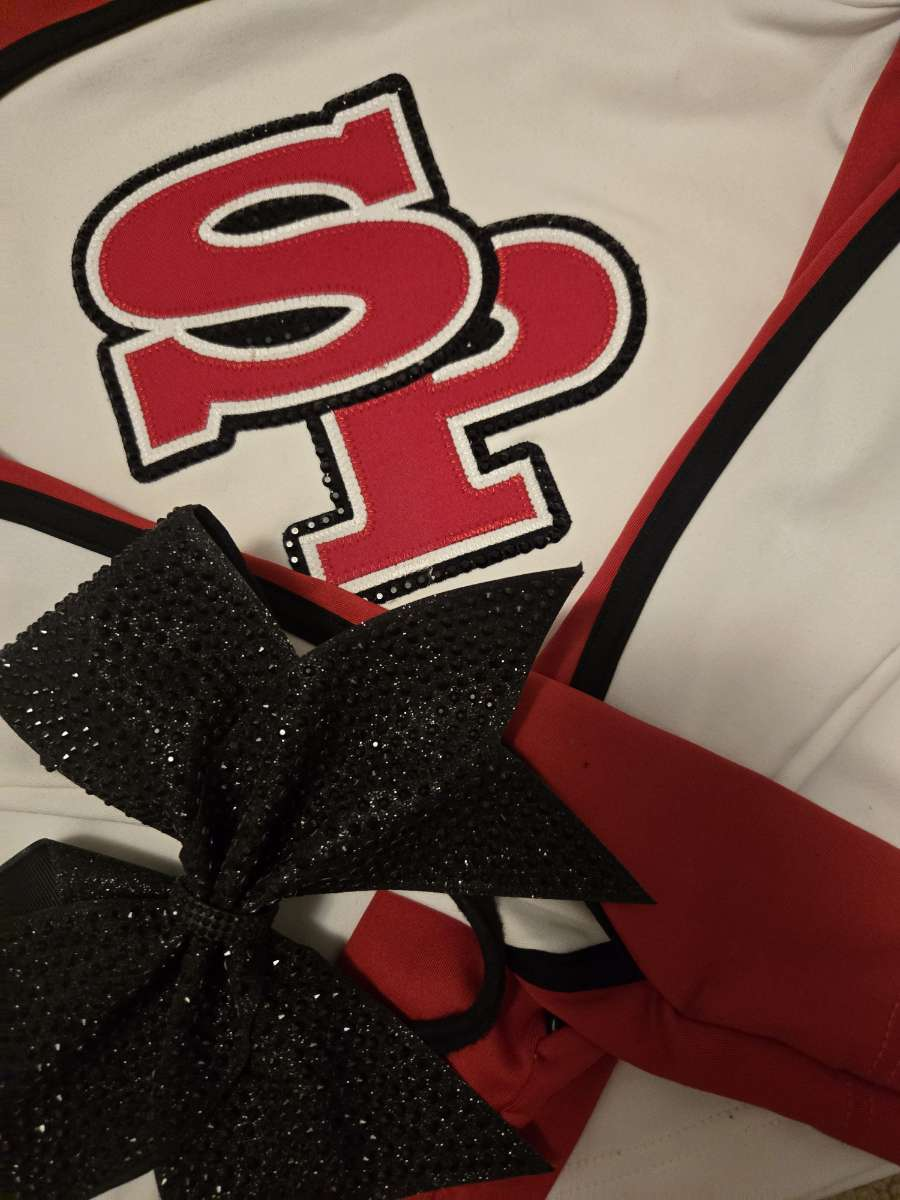Standing in the spotlight in front of a huge crowd is nerve-racking. Everyone is staring at you. A thousand eyes are coming from all angles. You look at the scoreboard. We’re behind. The excitement that filled the stadium 30 minutes ago is gone. You have to keep smiling. Keep performing. One of your teammates starts a cheer. You turn around and get hit by the judging looks. No one is in the mood for cheering but you have to keep going. It’s your job.
Erik Brady from USA Today wrote an article about cheerleading, saying, “The first cheerleaders in late 19th-century America were, like Webb, male.” Jeff Webb was a cheerleader when he was young and is now a businessman. As a male cheerleader, Webb had experienced stereotypes and norms. “If the notion of a male cheerleader makes some people laugh, well, that’s OK with him” (Brady)
Webb is the founder behind Universal Cheerleading Association and Varsity Spirit. Multiple cheerleading companies have appeared throughout the history of cheerleading. Varsity Spirit is one of the biggest cheerleading companies in the world says Erik Brady in his article. Varsity makes uniforms, bows, practice wear etc. Varsity also has a TV station that covers cheerleading competitions worldwide.
Teen movies are one of the things that have made a lot of norms and stereotypes about cheerleading. Victoria Coren is a British presenter and she says, “In American teen fiction, the gap between the cool, pretty girls and the losers was infinitely more pronounced because the cheerleading squad was a formal division between them. Wrongly shaped American girls didn’t just feel left out, they were” (Mulkerins). The popular girls in the 60s to 90s movies were always a part of the cheer squat. Cheerleaders are supposed to bring school spirit but instead, the sport gets connected to stereotypes of perfect girls. “From Grease to Glee, this uniquely American creation is a byword for prettiness and popularity, a symbol of safe, unthreatening, girl-next-door sex appeal” (Mulkerins).
Stevens Point Area High School (SPASH) has a great cheerleading program. Maddi Pohlkamp teaches Transition To Success at SPASH and coaches the varsity football cheerleading team. She took over the SPASH cheerleading program three years ago and always makes everyone feel welcome and important. “I think all sports get a little bit of people that don’t really understand their sport as much and sometimes it comes off poorly communicated but since I took over the program three years ago I’ve seen that majorly die down,” she says. It’s really important to Coach Pohlkamp that her cheerleaders behave well and treat everyone with respect. “I want them to be positive, nice people and people that others can rely on,” she says. Dayana Swope is an athlete on the SPASH football cheerleading team. Dayana is a sophomore and had her debut on the team this fall. She says, “I feel like I constantly have to prove myself because people think you’re stupid as a cheerleader. If you’re a cheerleader and blonde you must be dumb.” Lexi Fusco is a junior and has been cheering on the SPASH football cheerleading team for three seasons. She says that the cheer team has come so far because of Mrs. Pohlkamp.
Stereotypes in cheerleading still exist. Over the years it has decreased majorly but the hate and norms are still a problem. Cheerleading is a sport for everyone no matter gender or looks. Cheerleading isn’t like the movies. You don’t have to be popular. We’re all young adults who love what we do.
Next time you find yourself stereotyping a person think about what they’ve been through to get where they are today.































































